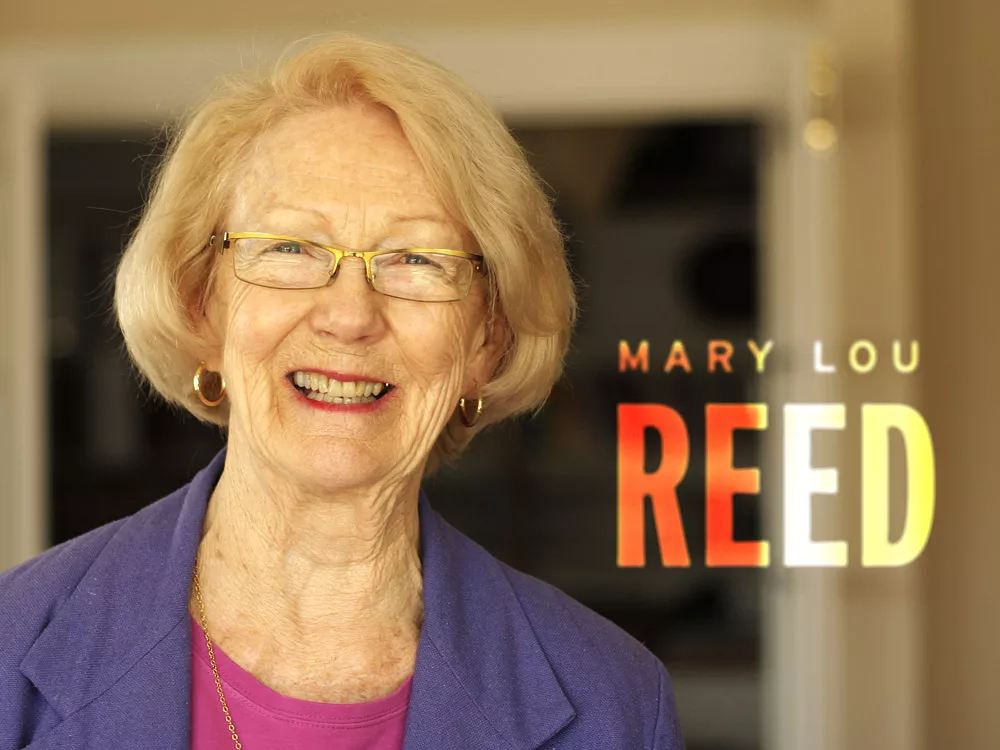It’s not my intention to deliberately set out to bore you with the proposed changes to the Idaho Constitution. Even though constitutions are quite in vogue now among self-styled Mama Grizzlies and the Tea Party set, I am not convinced many people — including the aforementioned outspoken activists — actually regard constitutions as delightful, page-turning bedside reading.
We even watched last week as Christine O’Donnell, Republican candidate for the U.S. Senate from Delaware, expressed amazement in a public debate that “separation of church and state” follows from the First Amendment of the U.S. Constitution. That Mama Grizzly, busily campaigning, isn’t as eager to bone up on constitutional issues as she is to move to Washington, D. C.
So perhaps we can agree that more people today are eulogizing constitutions than actually reading and understanding them. Regular people really prefer reading a story with protagonists and villains and action and human interest.
Again, I write not to bore you, but to ease your conscience. You don’t have to be a constitutional scholar. If you are an Idaho voter, rest assured there are no hidden agendas or underlying threats included in the four ballot measures you will be expected to vote on when you go to the polls on Tuesday, Nov. 2.
Or, if you have already voted, it’s okay if you experienced some anxiety and confusion. The earth is still spinning on its axis. The ballot issues are just as dull as you expected.
I plan to vote YES on all four proposed changes to the Idaho Constitution on the ballot.
But, I do have some qualms about the first measure, Senate Joint Resolution 101. Article IX, Section 10 of the Idaho Constitution outlines the powers of the Board of Regents of Idaho’s land-grant college, the University of Idaho. The language has been interpreted to mean the U of I can’t charge its students tuition for classes. That, in turn, has been interpreted by the university that it’s upstream without a paddle. Charging students fees, without calling it tuition, has been a way around the prohibition, but hardly a straightforward one. Supposedly fees aren’t being spent on the cost of instruction, but dollars in a pot can drift — a lot.
So this is a move to make an honest woman of the university, to call tuition “tuition,” and to return the word “fee” to its proper place in the university’s vocabulary.
My qualms are reflected in the voter pamphlet statement against the proposed amendment, which reads, “The framers of the constitution envisioned a free education for University of Idaho undergraduate students, and that historic precedent should not be changed.”
The preferred alternative would be for the Idaho Legislature to appropriate sufficient funds to the University of Idaho to cover the costs of a tip-top education. The worry is the money spigot, once turned on, will raise tuition beyond the level students can afford.
Nevertheless, the University of Idaho is a precious friend with financial woes. We need to vote YES to free it from its money trap.
The three other constitutional amendments follow in the wake of a 2006 Idaho Supreme Court decision, which more clearly delineated the “ordinary and necessary” rule.
Article VIII of Idaho’s Constitution mandates a two-thirds majority vote for a political subdivision to incur debt. For a century, the cities, counties, airports and hospitals have danced around the exception to the rule in order to borrow funds to expand or update facilities. If the desired change is considered an extension of “ordinary or necessary” administrative business, no vote has been required.
The Supreme Court put some boundaries around that interpretation by saying Boise’s desire to build a five-story parking lot at the Boise airport might be ordinary, but could not be interpreted as necessary.
My analogy of “ordinary and necessary” involves blue jeans, which everybody wears everywhere. A good sturdy pair of jeans with an elastic waist and baggy legs is certainly ordinary, but the $125 pair of cute tight jeans with stitching on the back pockets and a minimum of material, which your teenage daughter desperately wants, may not be necessary.
The constitutional changes we’re voting on would give hospitals (HJR 4) and airports (HJR 5) the ability to borrow money within the “ordinary and necessary” bookends as long as no tax money is involved in the repayment.
Hospitals will pay off their debts from fees, rents or other income. Airports have a slightly different assortment of non-tax income. Payment for bonds is limited to fees, charges, rents, payments and grants.
In the case of city-owned electric systems (HJR 7), cities would be able to issue revenue bonds with the approval of 50 percent of voters, provided the indebtedness will be paid for by electricity sales.
The dénouement to the Boise garage story? The five-story plan was scrapped, a new design drawn up, another judge ruled that it looked ordinary and necessary, and the garage was built.
But clearly, the ordinary and necessary criteria have become too loosey-goosey for cities, hospitals and airports to ride on into the 21st century. Hence the wise decision to just simply change the Idaho Constitution to adopt something called revenue-based enterprise debt. No taxes, no sweat. Vote yes.
Mary Lou Reed is a former Idaho State Senator from Coeur d’Alene. Send comments totheeditor@inlander.com

